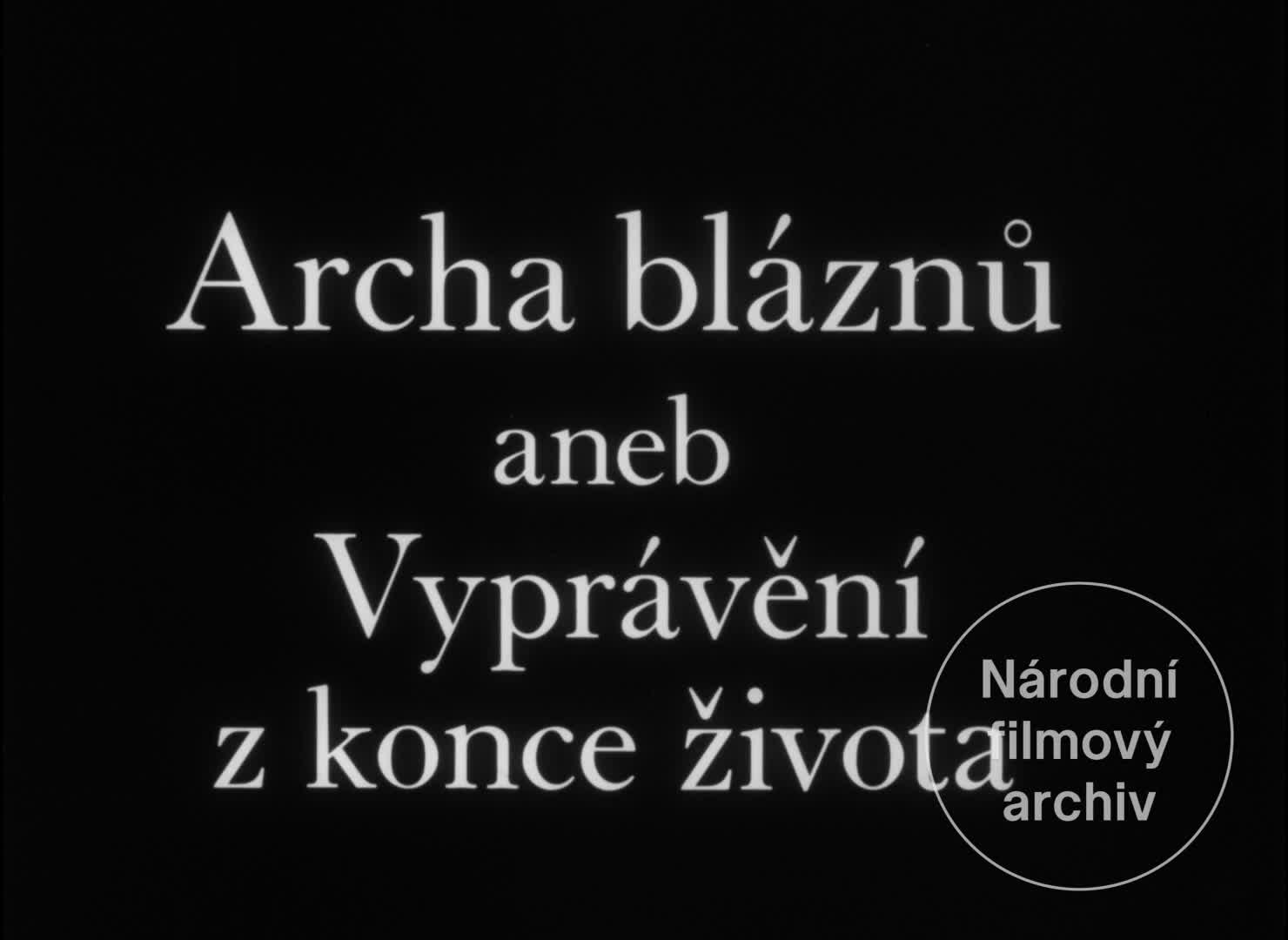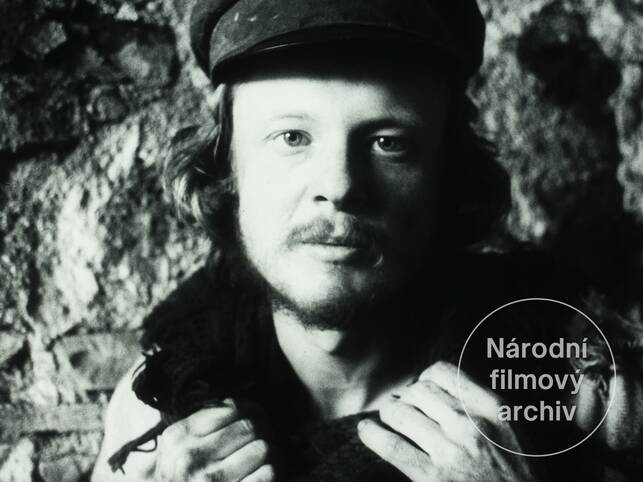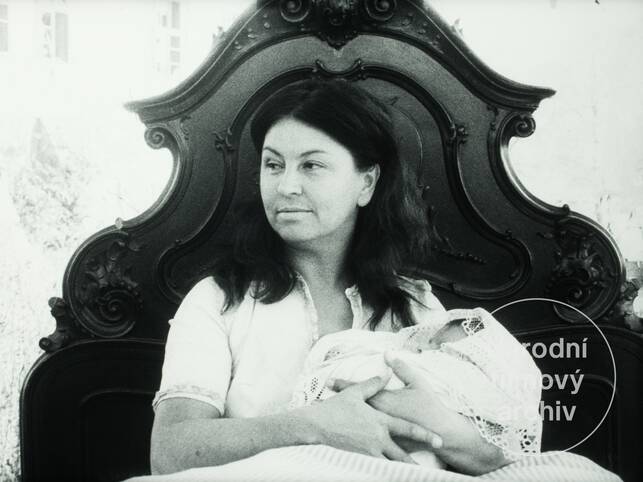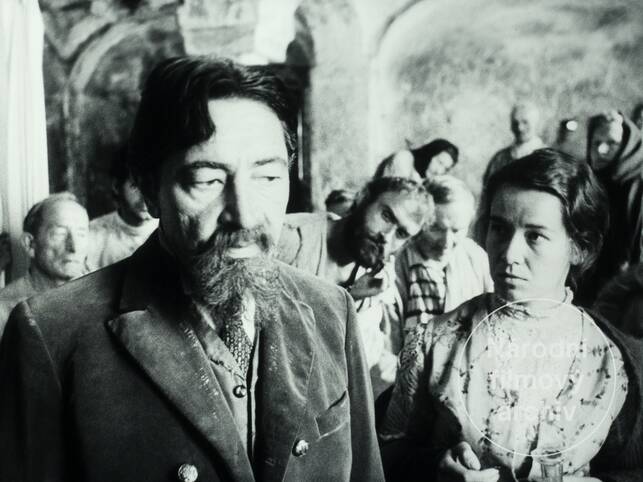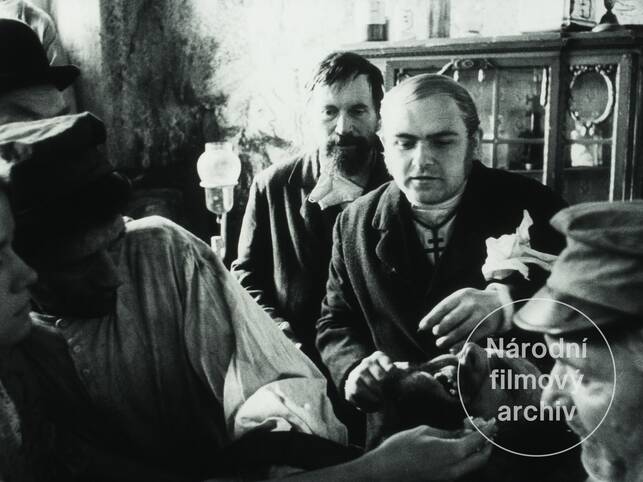Summary
The only film made by Slovak director Ivan Balaďa for the silver screen is an allegory, usually listed under its abbreviated title of Archa bláznů (Ark of Fools). A native of Bratislava, Balaďa made numerous documentaries and feature films for TV (such as Smrť sa volá Engelchen [Death is Called Engelchen, 1963], Tri gaštanové kone [Three Bay Horses, 1967], Oči plne snehu [Eyes Full of Snow, 1983] and the three-part drama Biela voči oblohe [White against the Sky, 1986]). He also made a fairytale TV film O živé vodě (On the Water of Life, 1987) and a TV miniseries Největší z Pierotů (The Greatest of Pierrots) which was inspired by František Kožík’s novel of the same name and aired in 1990. Archa bláznů (Ark of Fools) also stands out among Balaďa’s works for exactly the wrong reason; it halted his career as a cinema director for good. Loosely based on the short allegorical story Ward No. 6 by Anton Chekhov (1892), with a screenplay penned by Lubor Dohnal, the film was a too thinly veiled caricature of contemporary politics, despite its adherence to the book’s original time-frame and setting. The making of the film was halted in 1970 and the film material was not restored until 20 years later. Although Archa bláznů was completed along the lines of the original concept, the author’s satisfaction would never be complete. Chekhov’s allegory tells the story of senior medical officer Andrey Ragin who attempts to transform a dilapidated psychiatric ward that has been entrusted to his care. However, he is largely unable to help his patients and beyond that his own demeanour raises suspicions that he is mentally ill himself. Ragin therefore ends up among his patients and dies before he can carry through his ideas of liberty and equality. A sensitive man of conscience thus finds himself at the receiving end of persecution by a totalitarian society… The lead role of Ragin in the film was assumed by the now almost forgotten actor Zlatomír Vacek while the patient Gromov was played by then 24-year-old folk singer Vladimír Merta.
Read more

